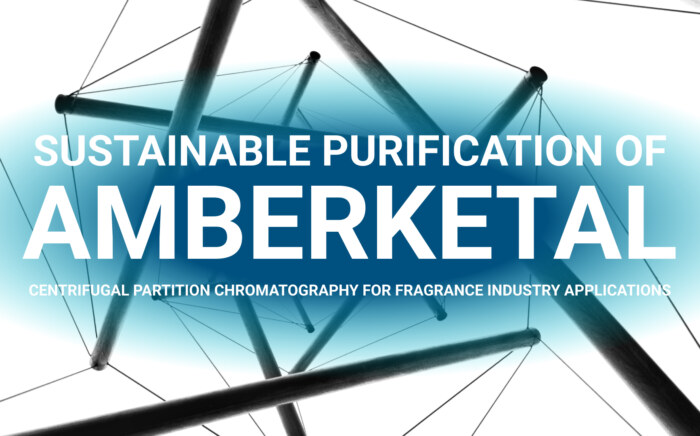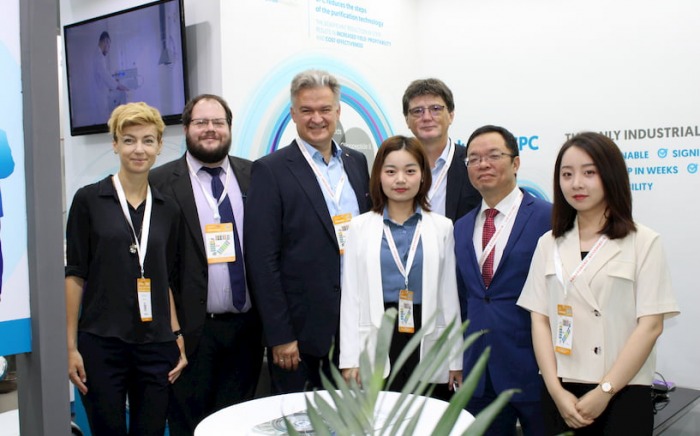Increasing separation efficiency by pH adjustment in Centrifugal Partition Chromatography
NewsThe manufacturing of small molecule Active Pharmaceutical Ingredients (APIs) is a complex and highly regulated process that necessitates specialized facilities, regulatory expertise, chemistry proficiency, and effective supply chain management. To overcome these challenges, pharmaceutical innovators often collaborate with Contract Development and Manufacturing Organizations (CDMOs) for API production. A robust manufacturing process for APIs or key intermediates is essential to ensure the high purity of pharmaceutical products, and preparative chromatography stands out as a widely used technique in this domain.
API manufacturing involves the production of biologically active substances, serving as the vital components in medicinal products. These APIs can be obtained from diverse sources and can be chemically synthesized or produced through fermentation processes. Once obtained, APIs are formulated into finished dosage forms like tablets, capsules, or injections, which are then distributed to patients for therapeutic use. Alternatively, APIs can be supplied as standalone products to other pharmaceutical manufacturers for further formulation.
The production of APIs is meticulously regulated to guarantee the purity and quality of the active ingredient. Adhering to strict quality standards and maintaining precise control over the manufacturing process are imperative to ensure consistency and compliance with specifications. Factors such as yield, cost-effectiveness, and scalability are equally vital in API manufacturing, given that APIs are typically produced in large quantities to meet market demand. The development of an efficient and cost-effective manufacturing process, scalable to meet production requirements, is fundamental in this domain.
Active Pharmaceutical Ingredients Manufacturing and CDMOs
To navigate the intricate landscape of API manufacturing, pharmaceutical innovators often join forces with Contract Development and Manufacturing Organizations (CDMOs). These specialized entities excel in delivering comprehensive services encompassing API development, optimization, and production. Equipped with extensive expertise, state-of-the-art facilities, and regulatory acumen, CDMOs adeptly meet the exacting demands of API manufacturing.
The spectrum of services provided by CDMOs is extensive, covering vital areas such as process development, process optimization, scale-up, and commercial API manufacturing. Collaborating closely with pharmaceutical firms, CDMOs dedicate efforts to formulate robust and efficient manufacturing processes that align with stringent quality standards, yield objectives, and cost efficiencies crucial to the project. Moreover, CDMOs extend regulatory support, ensuring strict adherence to the stipulated regulatory guidelines and requirements.
Manufacturing APIs With Preparative Chromatography
Preparative chromatography stands as a cornerstone method in API manufacturing, facilitating the separation, purification, and isolation of substances from intricate mixtures. This potent technique capitalizes on disparities in physicochemical properties like size, charge, or polarity to effectively separate APIs from impurities. Its versatile application spans various stages of API manufacturing, encompassing the isolation of APIs from natural sources, purification of synthesized APIs, and elimination of impurities from API intermediates.
Incorporating preparative chromatography into the manufacturing process can yield high levels of purity and desirable yield, rendering it indispensable for producing top-tier APIs. Mastery over chromatographic methods, equipment, and optimization is vital to craft and implement an efficient preparative chromatography process. Contract Development and Manufacturing Organizations (CDMOs) proficient in chromatography bring invaluable expertise to the table, offering pivotal support in the development and optimization of preparative chromatography processes tailored for API manufacturing.



